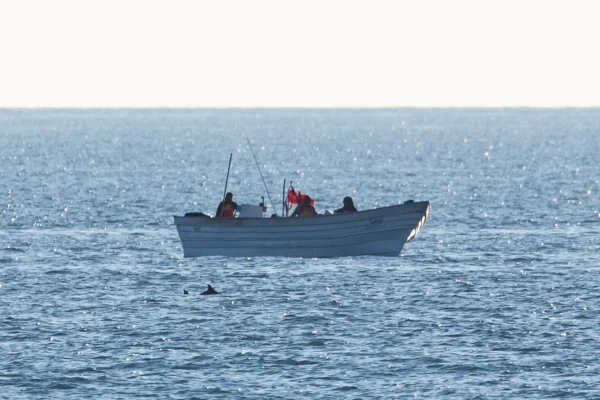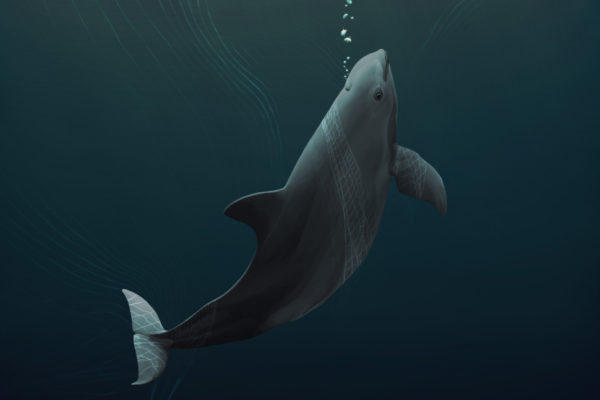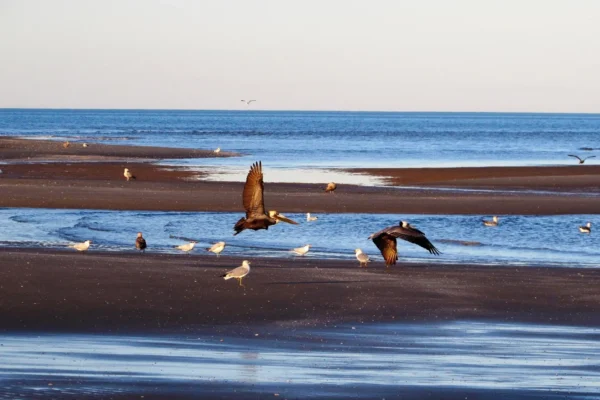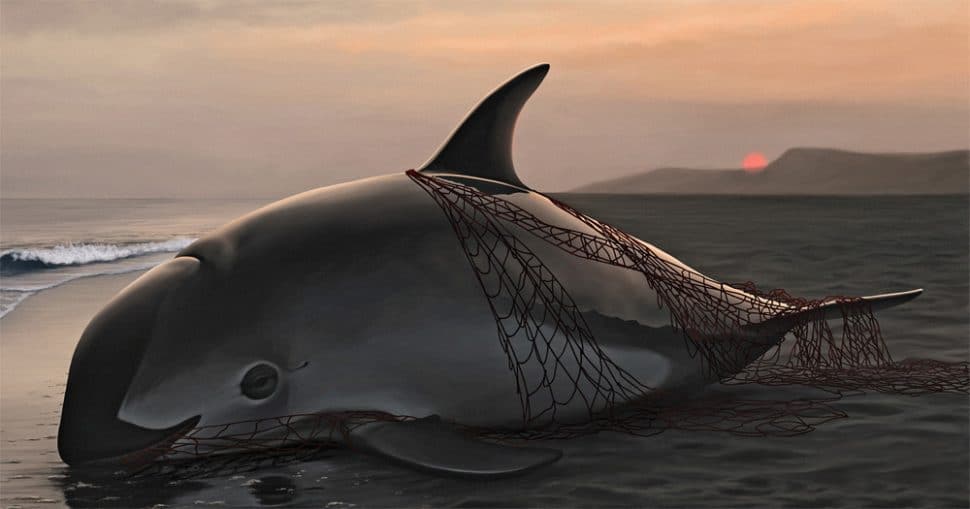
Mexico heeds to expert advice and bans gill-nets permanently
Today, only a week after the U.N. World Heritage Committee urged Mexico to extend its ban on gill-net fishing in the vaquita habitat or eventually risk losing its World Heritage status for the Gulf of California site, the government announced a permanent ban on gill-nets. This step also follows advice from international experts with the International Committee for the Recovery of the Vaquita (CIRVA), which in its June 2016 report called for timely action to save the vaquita:
CIRVA remains extremely concerned that illegal activities could be disguised by any form of fishing that involves pangas. This concern will remain as long as laws and enforcement are too weak to deter or prevent illegal fishing. CIRVA therefore recommends that the Government of Mexico immediately implement and enforce a permanent ban on all gillnets throughout the entire range of the vaquita and seriously consider the closure of all fishing there if evidence of illegal activities continues to come to light.
Report, Seventh Meeting of the Comité Internacional para la Recuperación de la Vaquita
Illegal fishing remains a serious threat to the vaquita
Mexico’s latest step, which also includes a ban on night fishing in the Sea of Cortez, is a huge success for conservationists. But it will likely not be enough on its own to guarantee the vaquita’s recovery. Illegal fishing for a large species of fish, the totoaba, remains a threat to the vaquita’s survival and is believed to be responsible for its decline in recent years. The totoaba is sought after for its swim bladder to satisfy a high demand in Asia, where it is believed to have medicinal properties. The high street value of $10,000 or more per kilogram has encouraged poachers in Mexico to ignore the risk of getting caught. This is not likely to change, unless serious enforcement measures are taken.
Mexico has already used drones and navy ships to patrol the vaquita habitat for illegal fishing activity. But poachers have defied the ban by fishing at night, or by hiding nets in smaller boats. The new measures include a requirement for fishermen to leave and return from specific docks, which is intended to make it easier for authorities to enforce the ban. The Mexican government also intends to continue to confiscate nets and to prevent their redistribution in the area.
In a press release, Mario Aguilar Sánchez, head of the National Commission of Aquaculture and Fisheries (CONAPESCA), also announced that by September a program to replace existing fishing gear with vaquita-friendly alternatives would be concluded. The replacement program aims to provide fishermen with alternatives for seasonal legal fisheries, for species like the corvina.
More about the vaquita
Related Articles
- Vaquita population down to 30 individuals
- We Can Still Save the Vaquita
- Hope for the Vaquita: Mexico bans gill-nets permanently
Knowledge Base
Efforts to save the vaquita need to continue
While the latest efforts are a reason for cautious optimism, the vaquita is still facing enormous challenges. The population has been reduced to just 1.2% of about 5,000 vaquita that are believed to have lived in the Sea of Cortez in the 1930s. Only 60 animals remain, and efforts will need to continue for many decades to bring the vaquita back from the brink of extinction. But it is possible, and there are examples of other marine mammal populations that have recovered against similar odds.
People ask me all the time, well, if there’s only 60 left, can we really save them, can they really come back, and can the population survive? And I would say, the answer is probably yes.
Dr. Anna Hall, Porpoise Conservation Society
By-catch is a global issue, affecting most marine mammals
Accidental entanglement in fishing nets is a threat that kills more than 300,000 whales, porpoises and dolphins every year, the same number of seals and sea lions, and a large number of sea turtles and sea birds. In addition to active fishing gear, “ghost fishing” is a significant threat as well. Discarded nets keep killing animals long after they have been decommissioned.
Join our mission to save the vaquita — and its cousins around the world
It may take the efforts of generations to come to bring back the vaquita, but losing this species to extinction is not an option.
We will continue our efforts to raise awareness for the vaquita — and you can do the same. Share the vaquita’s story with your friends and family. Whenever you shop for seafood, make sure you always choose sustainably caught fish and shellfish. Never buy unlabelled seafood products. Look for the symbols of sustainable seafood programs like MSC (worldwide), Seafood Watch (United States) or Ocean Wise and SeaChoice (Canada) and encourage your friends and family to do the same. That helps the more than 300,000 porpoises, whales and dolphins that drown in fishing nets every year.
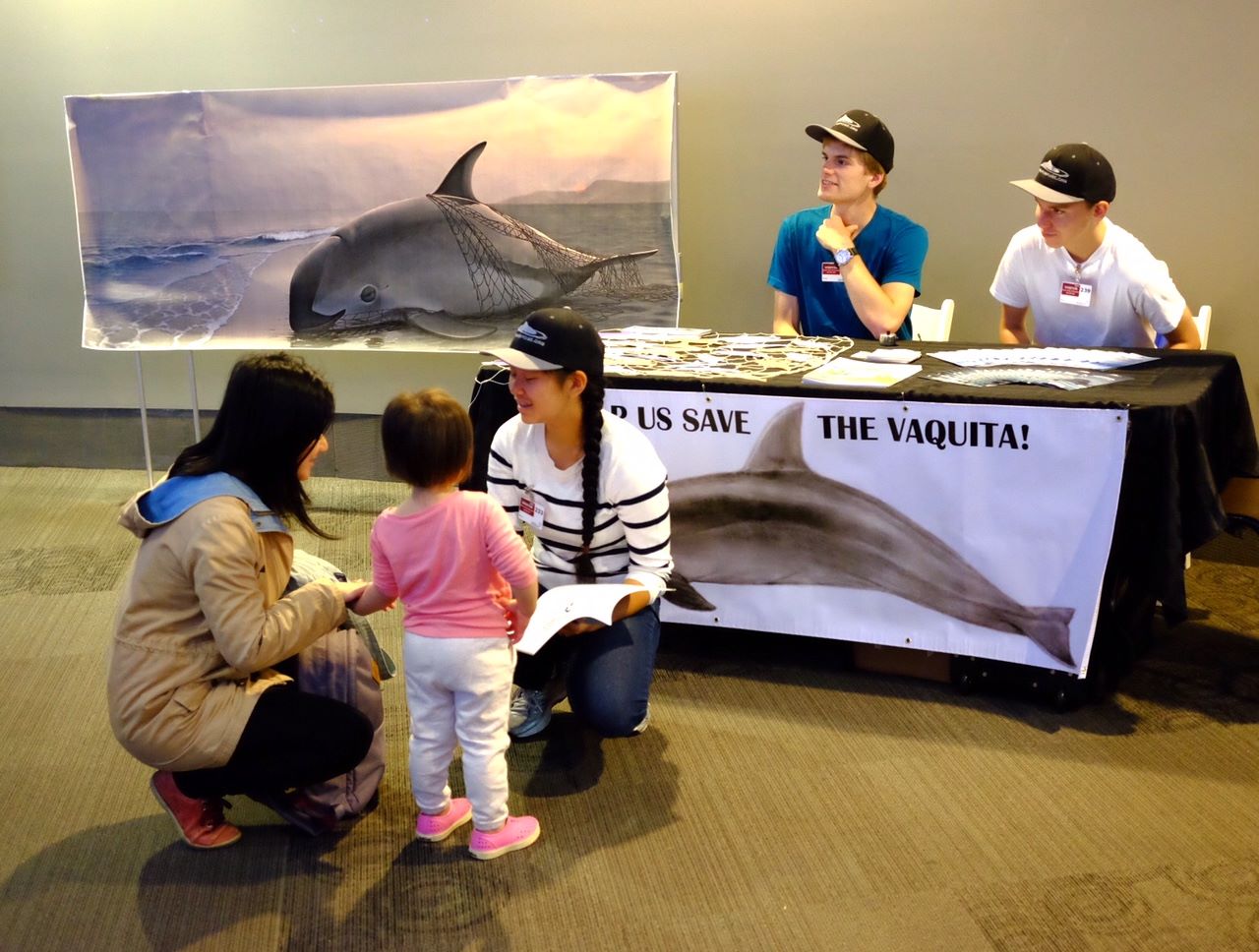
References and Further Reading
- Environmental Investigation Agency (2016). Dual extinction: The illegal trade in the endangered totoaba and its impact on the critically endangered vaquita. Briefing to the 66th Standing Committee of CITES.
